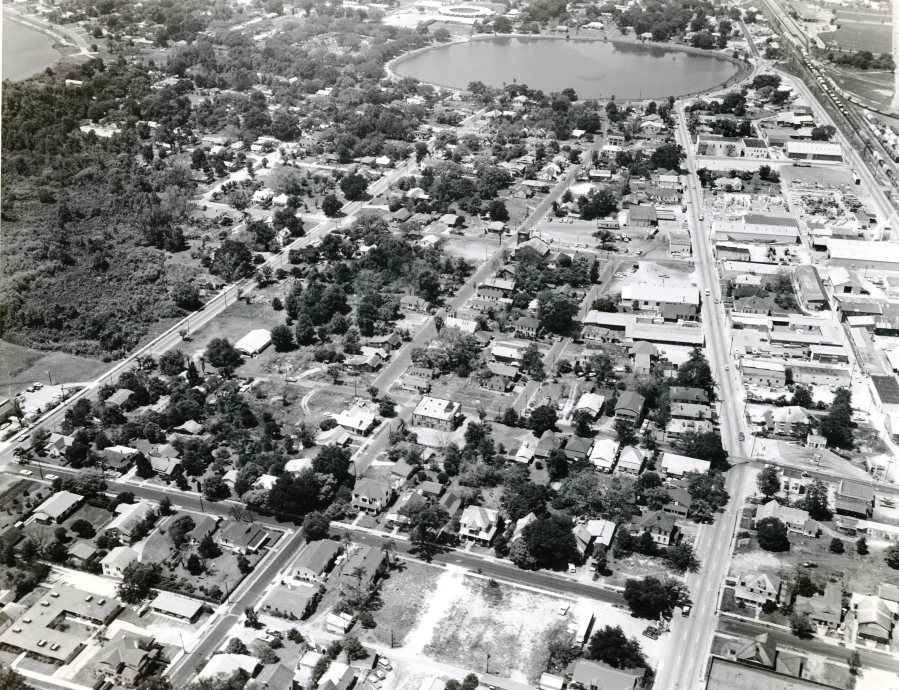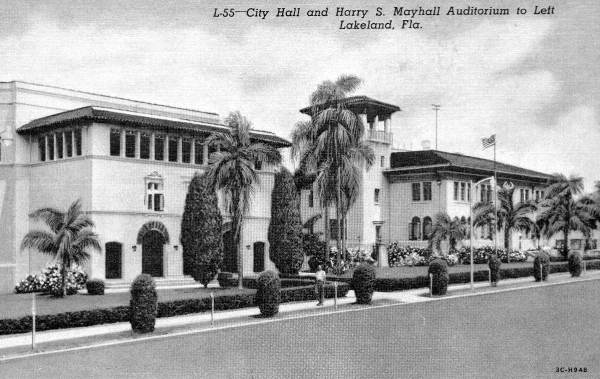LAKELAND, Fla. (WFLA) -The Moorehead community was a bustling neighborhood in Lakeland for African-Americans before desegregation, but nothing remains from the historic town.
“Willie Pearl,” Audrey Figgs said.
“That would have been here?” WFLA’s Deanne King asked.
“That would have been right here,” she replied.

Audrey Figgs, 75, remembers the Moorehead community as though it was still there.
“I can hear my mother right now standing on the porch, Ivory, Ann, Dawn, Audrey and Mary,” Figgs recalled. “We had to run through the path to come up and eat everyday at 5 o’clock my mother would call.”
Figgs grew up in Moorehead, which is where the first Black school and church were built in Lakeland.
“In 1954 I went to first grade at Moorehead Elementary,” she said.

West of downtown Lakeland, African Americans moved to the 35-acre Moorehead community in the 1800s to work on the railroad. Roads like Lime street, Orange street and Sycamore street were filled with Black-owned businesses, churches and schools.
“I remember Mt. Sinai Primitive Baptist Church simply because that’s where we played,” Figgs said. “That was the playground.”
In the late 1960s after desegregation, Moorehead residents were able to visit places they were once not allowed.
“I can remember my sister Mary telling my momma, ‘Momma, momma look at Audrey, she’s over there drinking that white water,'” Figgs recalled.
However, shortly after desegregation in 1971, the city of Lakeland purchased Moorehead using eminent domain to build an auditorium, which is now the RP funding center.

“The people were not satisfied,” Figgs said. “They had been on that land since the early 1800s. You just uproot people and move them? I’m baffled today, I still don’t understand why Mt. Sinai Primitive Baptist Church had to go, but yet WONN is still there. To me, that’s blatant discrimination.”
WONN is a radio station that has been operating since 1949. While that was never touched, many families were forced to relocate to areas like Westlake in Lakeland.
“I was kind of sad to see it go like that because we were one big family,” Louise smith said. “Now you drive through here and all you see is cement.”
Louise Smith, 81, also grew up in Moorehead. She moved to the area at 16 after growing up in Georgia.
“We would have to work the fields in Georgia, but here I was a cook for my dad,” Smith recalled. “Moorehead was a family. I miss it.”
Those stories and memories of Moorehead now live on through people like Figgs and Smith.
“For people who might not know the story of Moorehead, or know that Moorehead existed, after learning about it, what do you hope their take away is?” WFLA’s Deanne King asked Smith.
“That they will value more of where they are at and let them know what people had to give up,” she said.
The city of Lakeland memorialized the Moorehead community with a plaque at the now RP Funding Center. There are archives and photos in the Lakeland Library as well.






